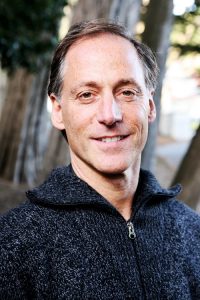Bradly Jacobs, MD, MPH, ABOIM, on Cultivating Resilience in the Time of COVID-19
 Bradly Jacobs, MD, the founding medical director for the Osher Center for Integrative Medicine at the University of California-San Francisco, is a Diplomate of the America Board of Integrative Medicine (ABOIM), which is governed by the American Board of Physician Specialties® (ABPS). Dr. Jacobs offers a refreshing perspective on how we can all move from a mode of surviving to one of thriving during this COVID-19 pandemic.
Bradly Jacobs, MD, the founding medical director for the Osher Center for Integrative Medicine at the University of California-San Francisco, is a Diplomate of the America Board of Integrative Medicine (ABOIM), which is governed by the American Board of Physician Specialties® (ABPS). Dr. Jacobs offers a refreshing perspective on how we can all move from a mode of surviving to one of thriving during this COVID-19 pandemic.
“We all have something in common,” Dr. Jacobs says, “we are all afraid. Recognizing our commonality allows us to come together around the difficulties we’re experiencing.”
During this anxious and often divisive time, he encourages us to pause and be mindful of our emotions, so that we can choose how to respond instead of simply reacting.
Humans across the planet are worried and afraid, Dr. Jacobs points out, but through intelligent planning, we can be comfortable, even confident, living with uncertainty. Two fundamental components on this path to a more centered life are knowledge, which is power, and a daily practice, which gives us choice.
Knowing more about COVID-19 and how we can stay safe and protect ourselves helps us on the intellectual, or cognitive, level, he says. Developing a daily practice, during which we quietly observe our thoughts and emotions, allows us to choose how we respond to stress and uncertainty, helping us to cultivate a sense of wisdom.
Dr. Jacob points out that we know virus outcomes are related to the host (the human body) and environment, but little attention has been given to the host. To put it simply, we must make smart health choices. Our immune system is a function of our health and vitality. Without proper sleep, nutrition, and exercise, it’s hard to maintain our well-being, much less robust health. Compromised health increases the risk of getting sick from the virus.
Dr. Jacobs says, understandably, many of us worry about contact with people, contaminated packages, and food, but the truth is the preponderance of infections are due to our environment, whether it’s a meatpacking plant, an office building, or our home.
He recommends that we take a close look at our indoor ventilation systems with a mind to improving them. Considering influenza alone, he notes that an improved ventilation system can reduce infections by as much as 50% percent. If it’s cost-prohibitive to redesign your ventilation system, you can improve ventilation in an interior space inexpensively by opening windows for cross ventilation and using fans and HEPA filters.
As Dr. Jacobs says, we should all know by now that contact prevention methods like washing our hands and wiping down counters and doorknobs are critical to curbing the spread of COVID-19. But it bears repeating that wearing a mask is hugely important. “The idea that you didn’t need a mask was politicized and policy-based and not based on science,” Dr. Jacobs says. “The question is which type of mask is best?”
For instance, some people ask whether it’s necessary to wear an N95 mask. “The truth is, N95 masks are uncomfortable and hard to find,” he says. “They also need to be properly fitted across your nose and mouth and under your chin, and, really, they belong in the hands of health care workers, who need them.”
But surgical masks are a great alternative. Some studies show that in non-hospital settings, there is no difference between N95 masks and surgical masks in influenza intervention effectiveness. When compared to homemade masks, surgical masks perform better at protecting yourself and others. Surgical masks also allowed far fewer of the particles emitted from a cough or sneeze to pass through.
To people who very concerned about how to safely navigate the workplace environment, Dr. Jacobs says it’s all about being mindful: “Slow yourself down. Be aware of your movements—how you adjust your mask, what you touch.”
The pandemic gives us an opportunity to reimagine our lives, Dr. Jacobs says. We essentially gain more sanity by asking ourselves questions like: How much do I want to consume? What’s really important to me? We have a valuable opportunity to regroup, reflect, and ground ourselves, he says.
To avoid exhaustion and anxiety, Dr. Jacobs recommends a daily practice, like meditation, which allows us to check our emotional state and our energy level, so that our concentration, decision-making, and immunity are their peak.
Remember also to exercise, Dr. Jacobs advises. Even low-intensity exercise offers significant health benefits. Go into nature for a walk or a hike. Also, find creative ways to socialize, as many Americans are doing through Zoom and thoughtfully planned outdoor and physically-distanced neighborhood gatherings. Then, rethink about our life’s purpose. “This can be a clarifying time to ask ourselves: What do I really want to do, how and with whom do I really want to spend my time?”










